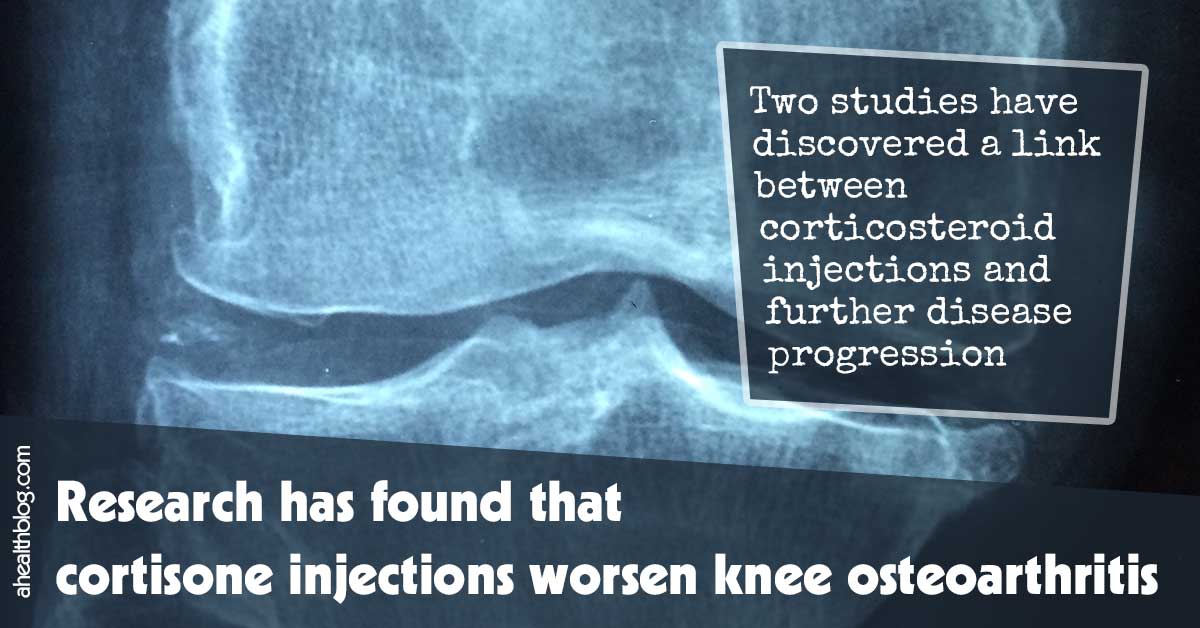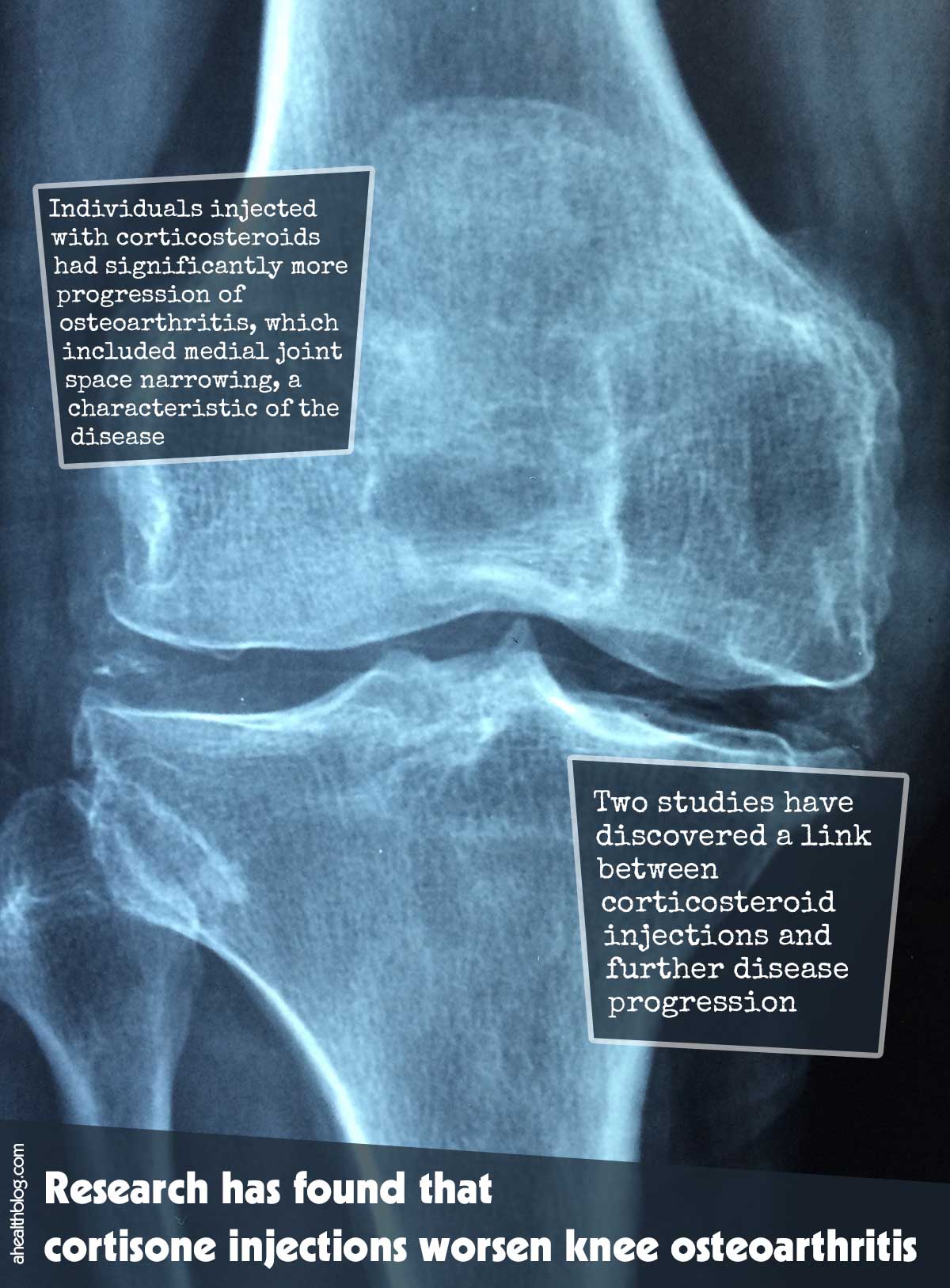Two studies that compared injections often made used for relieving knee osteoarthritis pain have discovered a link between corticosteroid injections and further disease progression.
Osteoarthritis is the most common kind of arthritis, and knee osteoarthritis is a progressive, degenerative, and chronic disorder with an estimated 800,000 cases annually. Over 10% of knee osteoarthritis patients seek noninvasive pain relief treatment by way of hyaluronic acid or corticosteroid injections.
Participants from the Osteoarthritis Initiative study were chosen for both studies. In the 1st study, 210 Osteoarthritis Initiative participants were included, 70 of whom had been given intraarticular injections and a control group of 140 who didn’t receive injections over 2 years. Of the 70 individuals who had been given injections, 26 received hyaluronic acid injections, and 44 received corticosteroid injections. The control and treatment groups were matched by disease severity, sex, age, BMI, and physical activity and pain scores.
MRI was carried out on all individuals 2 years before the time of injection, at the time of injection, and 2 years after injection. The MRI scans were evaluated by making use of a knee osteoarthritis grading system known as WORMS (whole-organ magnetic resonance imaging score) that focuses on the ligaments, joint effusion, cartilage, lesions in bone marrow, and the meniscus.
Progression of osteoarthritis was identified by comparing the initial scan imaging scores to the scores of the 2-year follow-up scans.
Statistical analysis revealed that corticosteroid injections were significantly linked to overall knee osteoarthritis progression, particularly in the medial cartilage, lateral cartilage, and lateral meniscus.
Hyaluronic acid injections weren’t significantly linked to knee osteoarthritis progression. In comparison to the control group, the group who had been given hyaluronic injections were found to have a reduction in osteoarthritis progression, particularly in lesions of the bone marrow.
Although both hyaluronic acid and corticosteroid injections are known to help with symptomatic knee osteoarthritis pain relief, the results indicate that corticosteroids are linked to significant knee osteoarthritis progression up to 2 years post-injection and should be used with caution.
Hyaluronic acid could however reduce knee osteoarthritis progression and relieve long-term effects while providing symptomatic relief.
In the 2nd study, a case-control study was carried out that compared radiographic osteoarthritis progression in individuals who had been given hyaluronic acid and corticosteroid injections.
Although these injections offer short-term pain relief for some individuals, the impact of the injections on disease progression is not known.
A group of 150 individuals was selected from the Osteoarthritis Initiative database with the same baseline characteristics, which included 50 individuals who had been given corticosteroid injections, 50 who had been given hyaluronic acid injections, and 50 who weren’t injected over 36 months. The groups were matched by X-ray results, BMI, and sex.
The participants’ knees were X-ray imaged at baseline and 2 years later. The X-ray imaging was analyzed, which included thickening of the bone around the knee cartilage, bone spur formation, and joint space narrowing.
In comparison to individuals who had been given a hyaluronic acid injection or no treatment at all, individuals injected with corticosteroids had significantly more progression of osteoarthritis, which included medial joint space narrowing, a characteristic of the disease.
Although imaging results for all individuals were much the same at baseline, the imaging characteristics of osteoarthritis were worse 2 years later in individuals who had been given corticosteroid injections in comparison to individuals who had been given hyaluronic acid injections or no treatment at all.
The results indicate that hyaluronic acid injections ought to be further investigated for the management of knee osteoarthritis symptoms and that steroid injections ought to be used with more caution.




